
Building Africa’s Wildlife Economy To Combat Land Degradation And Drought

17 Jun 2022
The theme for Desertification and Drought Day 2022 is “Rising up from draught together.” As the Spanish host for the Day explains: “Drought is not just the absence of rain; it is often fuelled by land degradation and climate change.” This year’s focus on drought allows us to connect the dots between biodiversity conservation, rural livelihoods, climate resilience, and community well-being at the landscape level.
The UN Convention to Combat Desertification (UNCCD) connects these dots through promoting sustainable land management (SLM) which they describe as “a holistic approach to preserving the vital functions and services provided by land in a long-term, sustainable productive capacity, by integrating biophysical, socio-cultural and economic needs and values.” The UNCCD 15th Conference of the Parties, held last month in Abidjan, reaffirmed the global support for SLM as a holistic approach by encouraging Parties “to simultaneously address land degradation, promote climate change mitigation/ adaptation, and contribute to conservation and sustainable use of biodiversity and sustaining livelihoods.”
Africa, with its rich diversity of terrestrial and marine biological resources, has a unique opportunity to promote SLM and combat land degradation through developing its wildlife economy. The wildlife economy enables the utilisation of wild plant and animal resources supported policies and programmes promoting integrated land use planning and integrated landscape management. Though the inclusive and sustainable utilisation of the continent’s wild biodiversity, landscapes can be restored, climate change can be mitigated, and livelihoods can be enhanced. By directly combating land degradation, wildlife economies can help Africa rise up from drought.
Research on wildlife ranching in South Africa, for example, observes that wildlife ranching is not only an “important avenue for biodiversity conservation,” but it may be “able to play a mitigating role in a climate impacted agricultural environment.” The African Wildlife Economy Institute (AWEI) at Stellenbosch University is currently building on this research by exploring opportunities for diversifying wildlife enterprises and their contributions to SLM in two large private landholdings in southern Africa – one managed for tourism and the other for livestock.
In Niger, AWEI’s partner, Sahara Sahel Foods, is promoting a wildlife economy approach to SLM by processing and marketing food products from wild perennial trees. By encouraging local farmers to plant indigenous trees, they aim to “create great gains in the battle against desertification,” “bring consumers in urban areas access to nutritious, healthy and natural foods,” and “reduce national trade deficits caused by heavy food imports.”
In her message for Desertification and Drought Day 2002, Elizabeth Maruma, Executive Secretary of the Convention on Biological Diversity, explains that we must connect the dots: “The underlying common drivers of biodiversity loss, climate change and land degradation should be considered and addressed together… Nature-based solutions and ecosystem-based approaches are cost-effective, long-lasting and bring multiple benefits for people and nature.” Across the African continent, the development of an inclusive and sustainable wildlife economy can play a key role in combatting land degradation and drought.
Dr Francis Vorhies
AWEI Director
No authors to show
We support the free flow of information. Please share:
More content
-
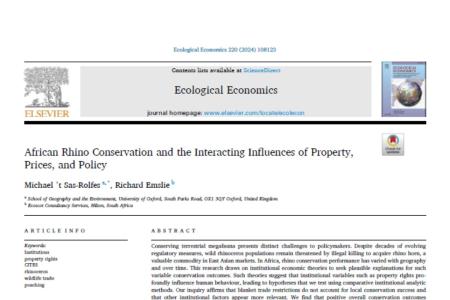
African Rhino Conservation - Interacting Influences
Michael ’t Sas-Rolfes…Conserving terrestrial megafauna presents distinct challenges to policymakers. Despite decades of evolving regulatory measures, wild rhinoceros populations remain...
2024Research -
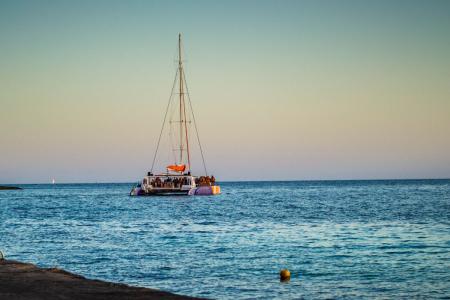
World Oceans Day: Awakening Africa’s Blue Economy
Dr Francis VorhiesThe theme of World Oceans Day 2024 on 8 June is “Awaken New Depths”. A key topic is the…
Articles -
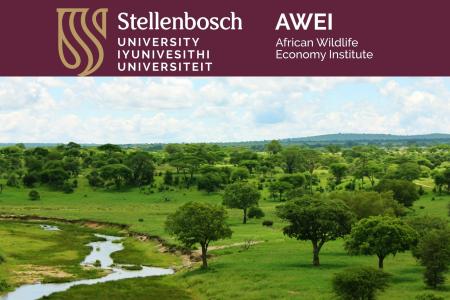
AWEI Updates May 2024
Ms Emily TaylorAs the Wildlife Economy Institute (AWEI) continues to grow and expand its reach, we have decided to produce…
Articles -
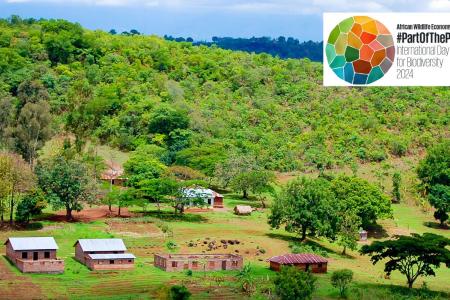
AWEI's role in the Biodiversity Plan for Life on Earth
Dr Francis Vorhies22 May 2024
Through a landscape approach to the development of Africa’s wildlife economy, we are part of…
Articles -
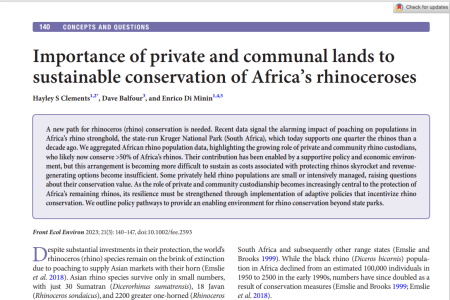
Importance of private and communal lands to sustainable conservation of Africa's rhinoceroses
Dr Hayley Clements…A new path for rhinoceros (rhino) conservation is needed... We aggregated African rhino population data, highlighting the growing...
2023Research -
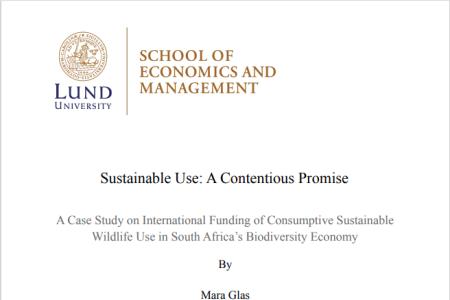
Sustainable Use: A Contentious Promise
Ms Mara GlasA Case Study on International Funding of Consumptive Sustainable Wildlife Use in South Africa's Biodiversity Economy In South...
2022Research -
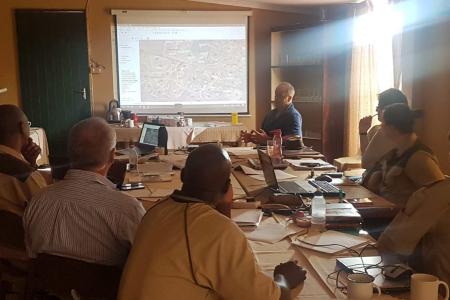
Collaborative governance models of wild product value chains for conservation and livelihood resilience
Mr Thapelo Brilliant LebopaSustainable utilisation of wild products, such as non-timber forest products, wild meat, and medicinal plants, requires governance models…Articles -
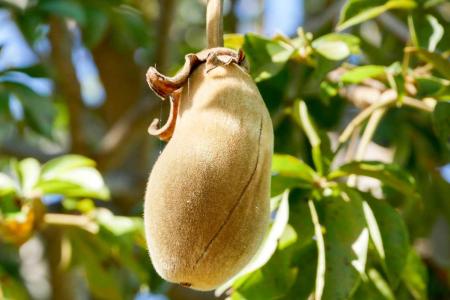
SA’s new biodiversity strategy is a key move away from colonial fortress conservation
Prof Brian Child…It was disappointing to read an article in Daily Maverick that sought to “ring alarm bells” about a…
Articles -
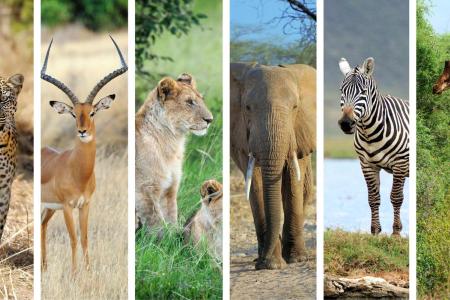
Ensuring the use of wild species benefits people
Dr Francis Vorhies…Observed annually on 3 March, World Wildlife Day is an opportunity for us to celebrate the diverse range of wild…Articles
Get updates by email
Through impactful research, stakeholder engagement, and professional development, AWEI is supporting the wildlife economy across Africa. Please subscribe for occasional updates on our work and forthcoming events.
Sign up for a quarterly dose of AWEI insights
In a complex and changing world, AWEI generates strategic ideas, conducts independent analysis on wildlife economies, and collaborates with global scholar-practitioners to provide training and expertise for biodiversity conservation, climate resilience, and inclusive economic opportunities in Africa.




